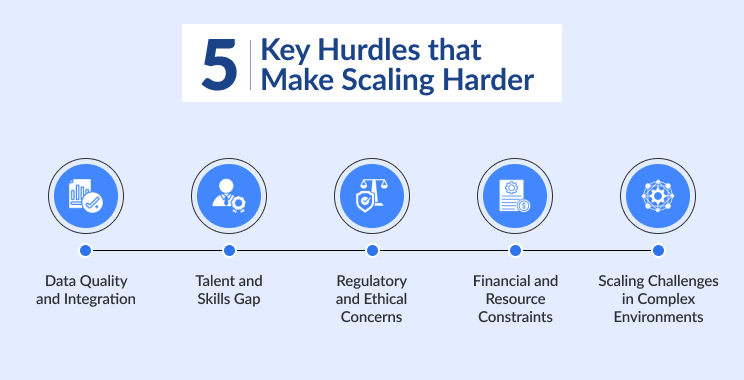Click here to chat with me!
Search our website now
Latest Posts
The term “black-box” means that AI algorithms are very complex and not easy to understand. Many AI systems use deep learning or other tricky math models. Even the people who make the AI can’t always explain how it works. This lack of clarity causes problems in healthcare because patients and doctors often don’t know how AI decides on diagnoses or treatments. This secrecy causes doubt. Patients might feel unsure or suspicious when AI is involved in their care, especially if they don’t understand the decisions. If a doctor can’t clearly explain an AI’s suggestion, it can hurt the trust between doctor and patient. Trust is very important because it affects how happy patients are, if they follow treatments, and their health results. Studies show that people trust AI less when they think it works in a secret or confusing way. Without clear reasons, patients may feel that machines are making important choices without enough human care. This makes care feel less personal and doesn’t fit modern standards where patients are at the center. The Importance of Trust and Empathy in the Doctor-Patient Relationship Healthcare is not just about giving the right diagnosis or treatment. It’s also about the bond between the patient and the doctor. Feelings like trust and care are very important for good healthcare. When AI tools are used without explanation, this bond may weaken. Research shows that when doctors show they care, patients are more likely to follow their treatments and be satisfied. Machines can’t really show care like people do. Using AI too much might mean doctors spend less time talking with patients. This can make patients feel less cared for. Keeping a human connection is very important even as AI is used more. AI should help doctors by doing routine tasks so the doctors can spend more time with patients. It should not replace the caring conversations that build trust. Healthcare places must balance new technology with human values. Addressing Bias and Healthcare Disparities in AI Systems Another big issue with AI’s black-box nature is bias. Many AI systems learn from data that doesn’t represent everyone in the U.S. well. These biases can make health differences worse, especially for groups that don’t get as much attention, like racial minorities, older adults, or people living far away. For example, if an AI system is trained mostly using information from middle-aged white men, it might not work as well for women of color or older patients. This can cause wrong diagnoses or bad treatment advice. Because the AI is a “black box,” patients from these groups may get worse care and trust AI even less. Researchers like Abiodun Adegbesan and others have pointed out how biased data can lead to worse communication and health results for some groups. This means healthcare leaders need to be clear about how AI makes decisions and about the data it uses. Enhancing Transparency: Strategies for Medical Practice Administrators and IT Managers Selection of Explainable AI ModelsSome AI systems are known as “explainable AI” or XAI. These systems can show clearly how they make decisions. While they might not always be as strong as black-box models, explainable AI helps doctors understand recommendations and explain them to patients. Choosing these kinds of AI tools is a smart move, especially in patient care. Integrating AI with Clinician OversightAI should help doctors make decisions, not make the choices on its own. Doctors must review AI’s suggestions carefully and talk openly with patients about them. This way, patients can trust their doctors’ judgment, while still getting AI’s help. Clear Communication with PatientsHealthcare leaders should encourage doctors to explain what AI does and how it helps in care. Patients like simple language that shows AI supports doctors rather than replacing them. Giving patients easy-to-understand materials about AI’s strengths, limits, and safety can lower fear and build trust. Regular Audits of AI Performance and BiasIT teams and leaders must check AI systems often for accuracy and fairness. This means testing AI with different groups of patients and fixing biases if found. Sharing reports about AI performance with healthcare workers, and sometimes patients, helps keep systems honest. Collaboration with Trusted AI VendorsWorking with AI companies that focus on fairness, honesty, and ethics is important. Vendors should give clear details about their AI models and the data used. For example, Simbo AI offers AI tools for front-office phone work that improve communication while respecting patients and healthcare staff. Choosing vendors who understand healthcare privacy and rules helps lower the risks of black-box AI. ✓ Voice AI Agent: Your Perfect Phone Operator SimboConnect AI Phone Agent routes calls flawlessly — staff become patient care stars. Unlock Your Free Strategy Session Administrative Wave: AI in Healthcare Workflow Automation AI is not only used for medical decisions but also to improve how healthcare offices work. For managers and IT staff, AI can reduce manual work while keeping good patient contact. One growing area is front-office phone automation and answering services. Some companies like Simbo AI have AI virtual receptionists that handle patient calls, schedule appointments, and answer questions using natural language processing. These systems can sort calls, give quick answers, and let staff focus on harder patient needs. Automating simple front-office tasks helps healthcare by: Reducing Wait Times: AI answering services can handle many calls quickly, so patients don’t wait long and get frustrated. Improving Patient Access: Automated scheduling and reminders help patients get appointments on time, which improves satisfaction and following treatments. Enabling Staff Productivity: By taking care of repeated tasks like confirming appointments or answering simple questions, staff can focus more on important patient care and admin work. Ensuring Consistency in Communication: AI keeps messages clear and standard, reducing mistakes or confusion in busy healthcare offices. Integrating with Electronic Health Records (EHR): Advanced AI can access or update patient info during calls, helping clinical teams work smoothly. But it is important to automate wisely to avoid making patient communication less personal. AI should help, not replace human contact. Most patients
Ahead of Intelligent Health (13-14 September 2023, Basel, Switzerland), we asked Yurii Kryvoborodov, Head of AI & Data Consulting, Unicsoft, his thoughts on the future of AI in healthcare. Do you think the increased usage of Generative AI and LLMs will have a dramatic impact on the healthcare industry and, if so, how? Generative AI is just a part of the disruptive impact of all AI tech on the healthcare industry. It allows to dramatically reduce time efforts, costs and chances of mistakes. Generative AI and LLMs are applied to automating clinical documentation, drug discovery, tailoring of treatment plans to individual patients, real-time clinical decision support and health monitoring, extracting valuable insights from unstructured clinical records, streamlining administrative tasks like billing and claims processing, providing instant access to comprehensive medical knowledge. And this list continues.
We sat with Benjamin von Deschwanden, Co-Founder and CPO at Acodis AG, to ask him his thoughts on the future of AI in healthcare. Do you think the increased usage of Generative AI and LLMs will have a dramatic impact on the healthcare industry and, if so, how? I think that the strength of Generative AI lies in making huge amounts of information accessible without needing to manually sift through the source material. Being able to quickly answer any questions is going to be transformative for everyone working with increasingly bigger data sets.The challenge will be to ensure that the information we get by means of Generative AI is correct and complete – especially in healthcare – as the consequences of wrong data can be fatal. We at Acodis are actively working on practical applications of Generative AI inside our Intelligent Document Processing (IDP) Platform for Life Science and Pharma clients to drive efficiency and accelerate time to market, whilst controlling the risks.
Intelligent Health 2024 returns to Basel, Switzerland on 11th–12th September. We’ve got prominent speakers. An extensive programme. Groundbreaking advancements in #HealthTech. And much, much more. Our incredible 2024 programme will dive deeper than ever before. From sharing the latest innovation insights to exploring use cases of AI application in clinical settings from around the world. All through our industry-renowned talks, limitless networking opportunities, and much-loved, hands-on workshops. Read on to discover what themes await at the world’s largest AI and healthcare summit.
We sat down with Margrietha H. (Greet) Vink, Erasmus MC’s Director of Research Development Office and Smart Health Tech Center, to ask her for her thoughts on the future of AI in healthcare. Do you think the increased usage of Generative AI and LLMs will have a dramatic impact on the healthcare industry and, if so, how? The integration of Generative AI and LLMs into the healthcare industry holds the potential to revolutionise various aspects of patient care, from diagnostics and treatment to administrative tasks and drug development. However, this transformation will require careful consideration of ethical, legal, and practical challenges to ensure that the benefits are realised in a responsible and equitable manner.








